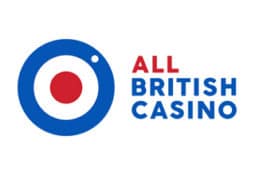Today in the UK, gambling has become a well-recognised institution, and statistics indicate that over 45% of UK residents gamble in some way or other each month. Under the watchful eye of the United Kingdom Gambling Commission (UKGC), the industry generates over £14.4 billion (2018 figures) a year.
But, did you know since the dawn of humanity, gambling is entwined with us?
Historians found evidence in 2300 BC ancient China of a lottery-type game mentioned in the Chinese ‘Book of Songs‘ similar to keno. They believed the construction of the Great Wall of China used these lottery funds.
Another historical evidence indicated that the Ancient Greeks and Romans loved to gamble. Greek history mentions dice in their writings in 500 BC, and the ancient city of Rome imposed a penalty on those caught betting worth four times the stake. They even found a pair of dice from an ancient Egyptian tomb from 3000 BC.
How Gambling Became Popular in the UK?

Throughout British history, people were both permitted and banned from gambling. While the Bible was used to discourage people from betting (cited as a sin), it didn’t stop people from betting among friends. It became so popular in the feudal society that King Richard of England in 1190 (the first person) introduced legislation to regulate gambling.
It was one of the early gambling law that outlined
- who could or could not gamble
- included a punishment through whipping
- and required fine-payment to the church
The middle ages saw the rise of betting actions with the nobles betting on activities, like horse races and jousting tournaments.
Quite a journey from betting on sporting events like chariot racing, gladiator fights, and boxing involving prisoners and convicts- Isn’t it?
The wave of UK gambling spread further as global cultures merged with the introduction of long-distance travel in the 13th Century. In the 1400s, the two-player card game – baccarat migrated to France from Italy.
Gambling in Ancient England
In ancient England, King Henry VIII banned gambling; as he believed- it distracted soldiers from their duties. But ironically, in 1569, his daughter – Queen Elizabeth I, legalised the first English lottery. The decision was taken to raise taxes and build the country.
Funny how British monarchs made a complete U-turn on gambling rules for getting taxes!
Today, the British monarchy is not associated with gambling, but it engages with horse racing. Queen Elizabeth II is known to have earned millions through her stables of racehorses.
In the 1600s, Blackjack emerged as a popular gambling game similar to a Spanish game – called Veintiuna (21) or Quinze (15) from France. Later, in 1638, the first casino was established in Italy named – The Ridotto. It was a casino in Venice that provided a controlled gambling environment among the chaos of the annual carnival season.
After the private lotteries got banned in 1721, Roulette originated in Paris, known as the Little Wheel in Paris in 1766. Later, in the 19th Century, it became one of the most popular casino games in the famous Monte Carlo casino.
Another casino game that grew over the decades was Poker. The French game we know today – Poque came from 17th Century Persia. Its sluggish popularity changed with the poker boom when in 1970, the world poker tournaments started in Vegas.
Gambling in the Victorian Era
The Victorian era in England was eventful when it came to the history of gambling. With the industrial revolution came all sorts of new inventions and scientific breakthroughs. It began the era of horse race betting and stock markets for wealthy people.
Opinions about the damaging social effects of gambling floated everywhere. Several lottery frauds and the concerns about the decline of morality in society forced the House of Lords to pass two laws that effectively banned gambling.
-
Gambling Act 1845
The act did not make betting illegal, but it discouraged the practice of making all wagers unenforceable as a legal contract. It resulted in a huge expansion of the betting houses. The act gave police more powers over the working classes, while the law permitted the wealthy aristocracy to enjoy gambling.
-
Betting Act 1853
The act made betting houses illegal. It prohibited the use or possession of any premises for betting or gaming. As a result, on-street gambling increased. Later, the government passed the Street Betting Act (1906), but it failed to clamp down on underground gambling.
The Legalisation of Track Betting
Both gambling and betting act resulted in the boom of horse racing gambling. The New Victorian social reforms brought in things like racecourses, paid holiday for workers for the first time, special excursion trains, etc.
It’s another reason why Britain plays host to some of the oldest and most renowned courses – Newmarket, Epsom, Cheltenham, etc., and races – St Leger, Guineas, Gold Cup, Derby, Oaks, etc.,
The licenced gambling at racecourses gave working-class families a chance to travel one-day out, and it brought over Greyhound racing from America to the UK in 1920. But with legalisation and the rise of other sports, games, and television, it lost its sheen post-1960s.
The Legalisation of Betting Shops 1960
The British government eventually realised prohibition was pointless, and it legalised betting shops in 1960. The 60s gave birth to the Gaming Board for Great Britain.
Overnight, things changed from seedy back alleys to a national institution!
It began to regulate casinos, bingo halls, and real money gambling arcades. Casino Club Port Talbot, Wales, was the first casino in the UK that came up in 1960. Over the years, the gambling law became more and more relaxed, and the Gaming Act 1968 opened doors to Casino-style venues.
Gambling in the UK – Beyond 20th Century
The next milestone event occurring in the history of UK gambling was the National Lottery formation in 1993. The first draw happened on November 19th, 1994, and till today, “The Lotto” raises huge amounts of money for charity and good causes.
The year 1994 also brought a new frontier for gambling. Microgaming, the largest casino and slot game developer company, leapt into the world of virtual casinos. It pioneered the online gambling concept.
As the internet rapidly grew, the competition between online and offline gambling became fierce. It forced land-based casinos to reinvent themselves.
Some of the oldest casinos in the UK- like Casino de Monte Carlo, Casino Cafe de Paris, etc., brought alive the concept of luxurious-relaxing, resort-style casinos. They enticed people with lucrative casino bonus offers to visit their casinos using entertainment shows like concerts, magic shows, burlesque, etc., and with glamourous and opulent interiors. From supercars, designer shops, luxurious hotel stays to options for watching Formula One from a superyacht and gambling variety of casino games, they did it all.
They gave the elites a chance to don their best attire, sip on a martini and visit their casinos to place a lucky bet!
In 2005 the UK gambling industry laid the foundation of the Gambling Act and the UK Gambling Commission. It changed the future of the offline and online gambling industry in the UK forever.
Further, the 2014 Gambling Amendment Bill ensured to tap the loopholes of the 2005 gambling act. Earlier, it allowed companies based abroad to advertise in the UK without a gambling licence. Now, they have to obtain a continuity license from UKGC. Further,
- It ensured they pay taxes on UK profits irrespective of their location.
- It made gambling games more transparent and protected vulnerable people (below 18 years) from gambling.
- It regulated the gambling markets instead of tampering with the practice itself.
- It levied massive fines on companies that failed to promote responsible gambling.
Online Gambling Casinos
Today, more than 150 operators have paid fees and obtained a continuity license from UKGC. They have opened new possibilities for online gambling in the UK, with a remarkable range of casino games available for free and for money.
So, now you can play casino games from anywhere and anytime you want, mate!
The regulatory body UKGC foresees various forms of online and offline gambling games
- Casinos
- Online casinos
- Arcades
- Bingo
- Betting
- Gaming machines supplies and manufacturers
- Gambling software providers
- Lotteries and raffles (including the National Lottery)
Future of Gambling
Over £3 billion tax revenue generated from betting and gaming indicate that the UK government will not ban gambling in the future. You can expect it to continue to flourish with faster connection speeds and better technology in the future.
Some of the anticipated future gambling trends are
- Mobile gambling and betting choices
- Live in-play betting opportunities
- Options for cashing out your wager before the end of an event
- Opportunities for safer and more responsible gambling
- The rise of VR casino games
Final Thoughts
Throughout history, gambling has evolved a lot!
UKGC has changed the culture of gambling by regulating it to be safe and transparent. Despite the gambling addiction risks, you can enjoy gambling in 2021 with gobsmacking offers and bonuses from the UK-regulated casino sites.






